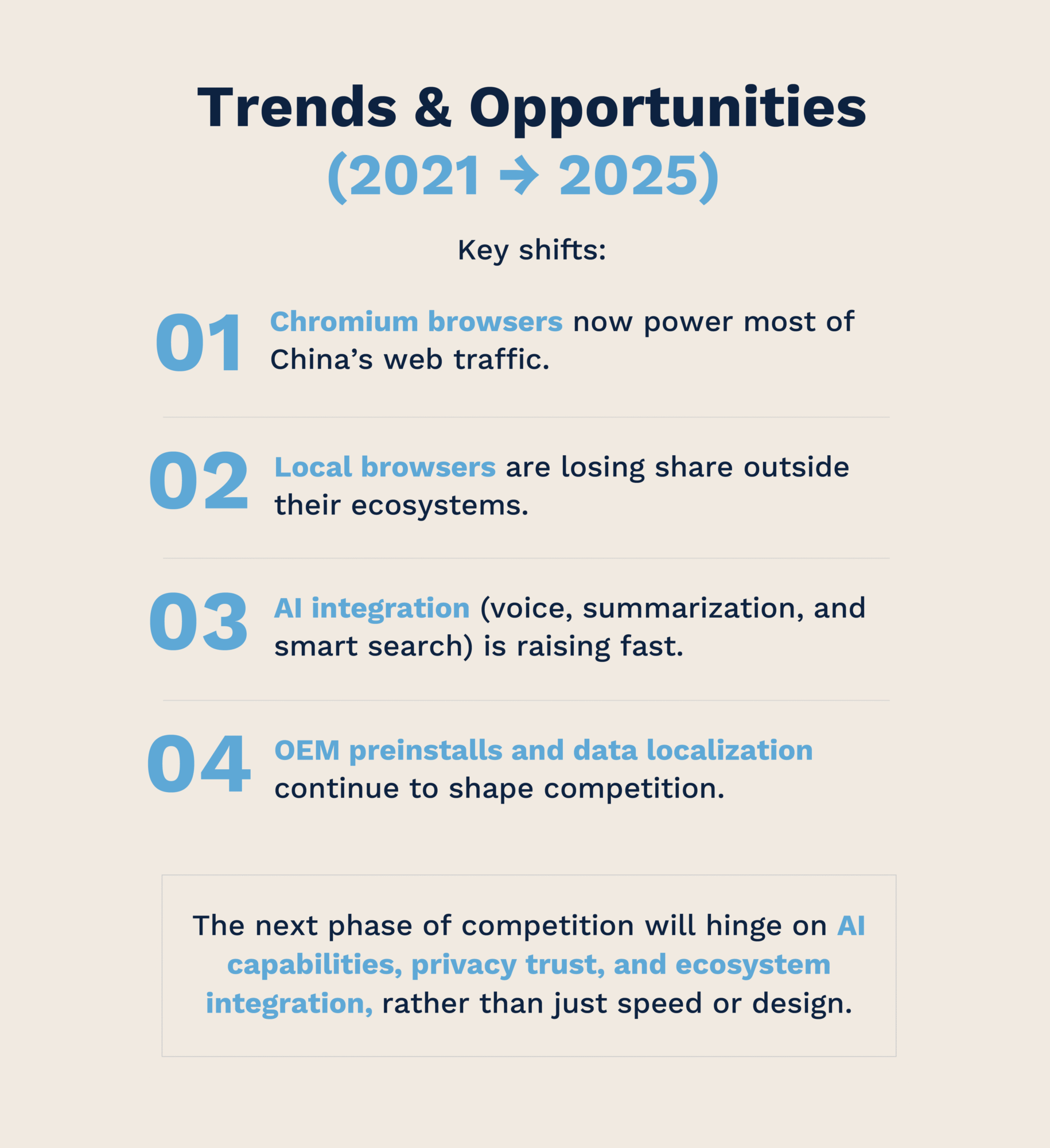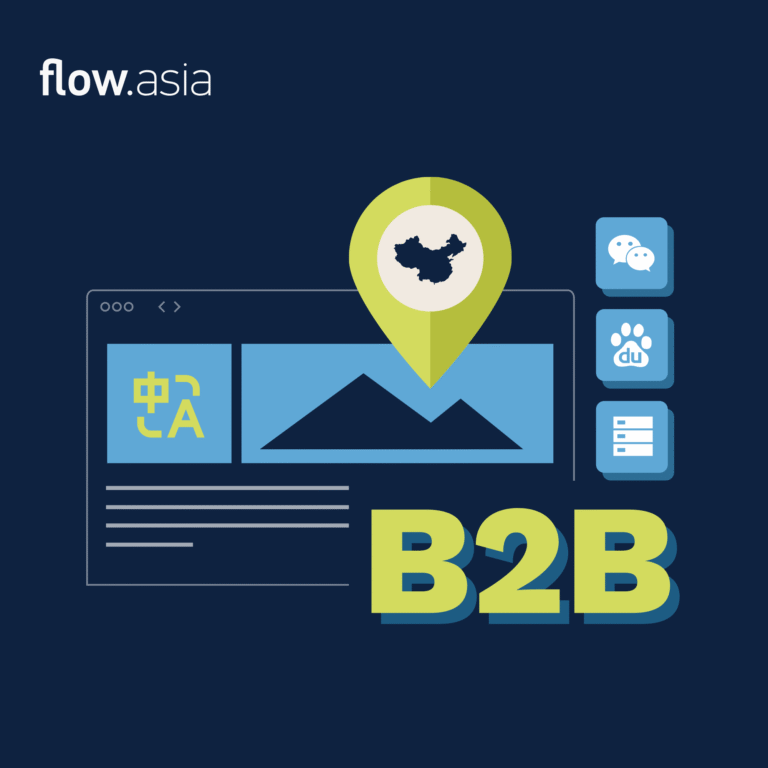

Who Really Runs China’s Web in 2025?
The story behind China’s browser landscape.
Overall Market Share 2025
Top browsers in China (all devices, Sept 2025)
- Chrome: 61.19%
- Edge: 9.83%
- Safari: 8.74%
- Android: 7.72%
- UC Browser: 4.01%
- 360 Safe: 3.17%
(Sources: StatCounter 2025)
Chrome leads, even in a market where Google is restricted.
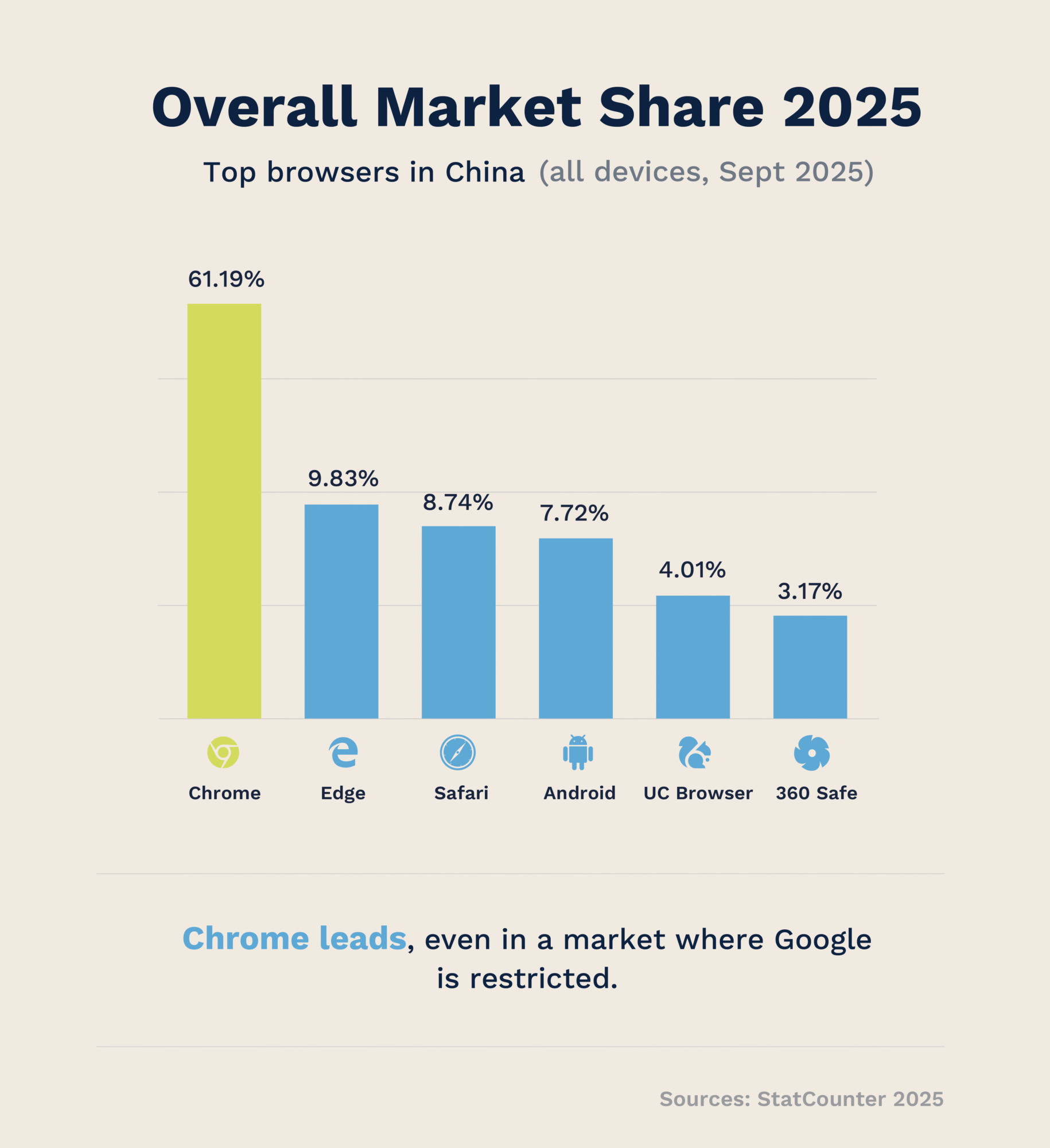
Why Chrome Leads Despite Restrictions
Although Google Chrome itself faces limits in China, its underlying technology (Chromium) powers most major browsers.
- Many Android browsers use Chromium by default.
- Users enjoy speed, reliability, and cross-device sync.
- Market data often counts these variants as “Chrome.”
In practice, Chromium powers China’s browsing experience.
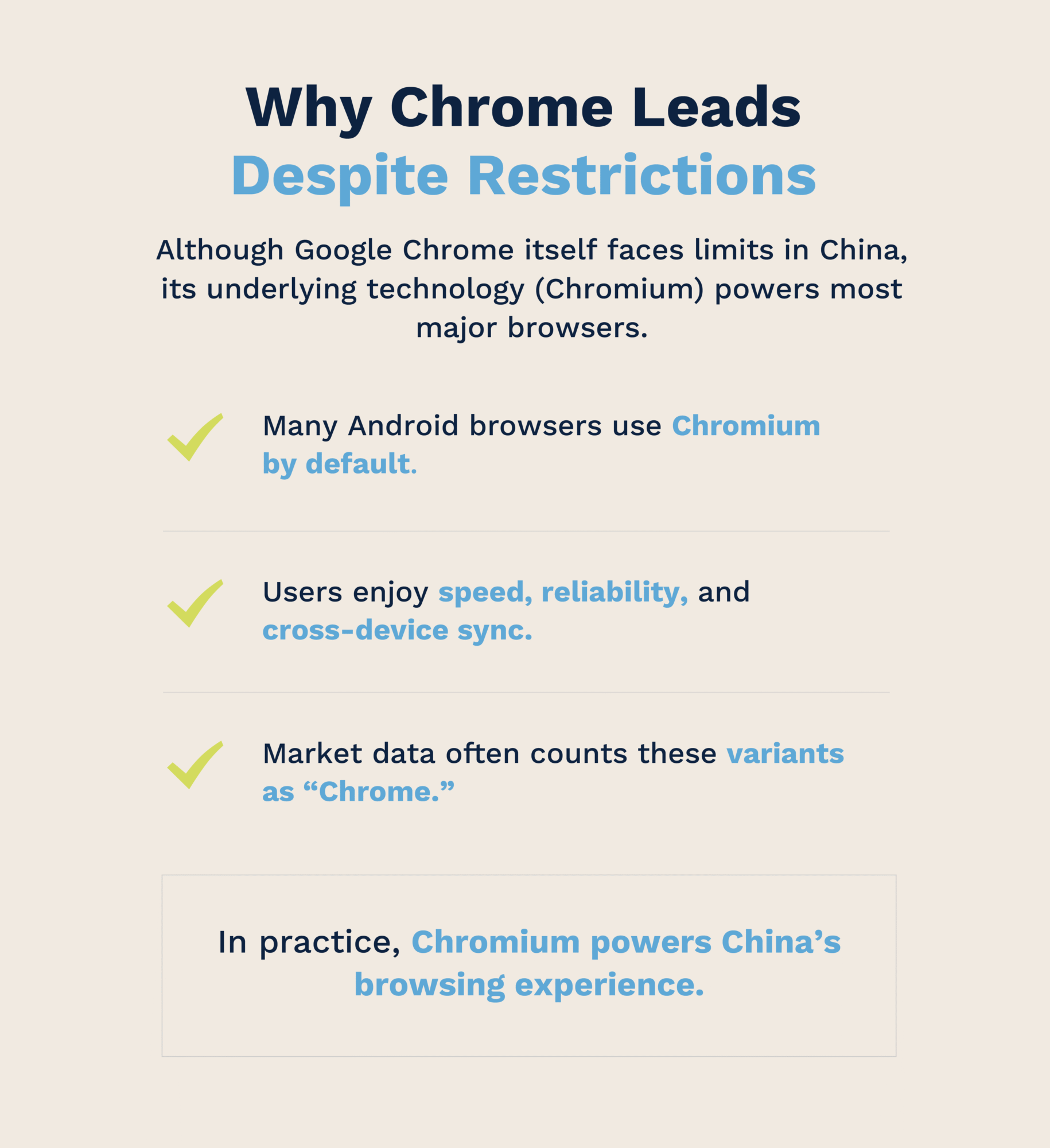
The Local Browser Landscape
Main domestic browsers in China:
- UC Browser (UC浏览器) – by Alibaba, mobile-focused
- QQ Browser (QQ浏览器) – by Tencent, social integration
- 360 Safe Browser (360浏览器) – by Qihoo 360, security focus
- Baidu Browser (百度浏览器) – by Baidu, integrated with its search engine
These browsers remain essential where Google services are limited, and most run on Chromium for web-compatibility.
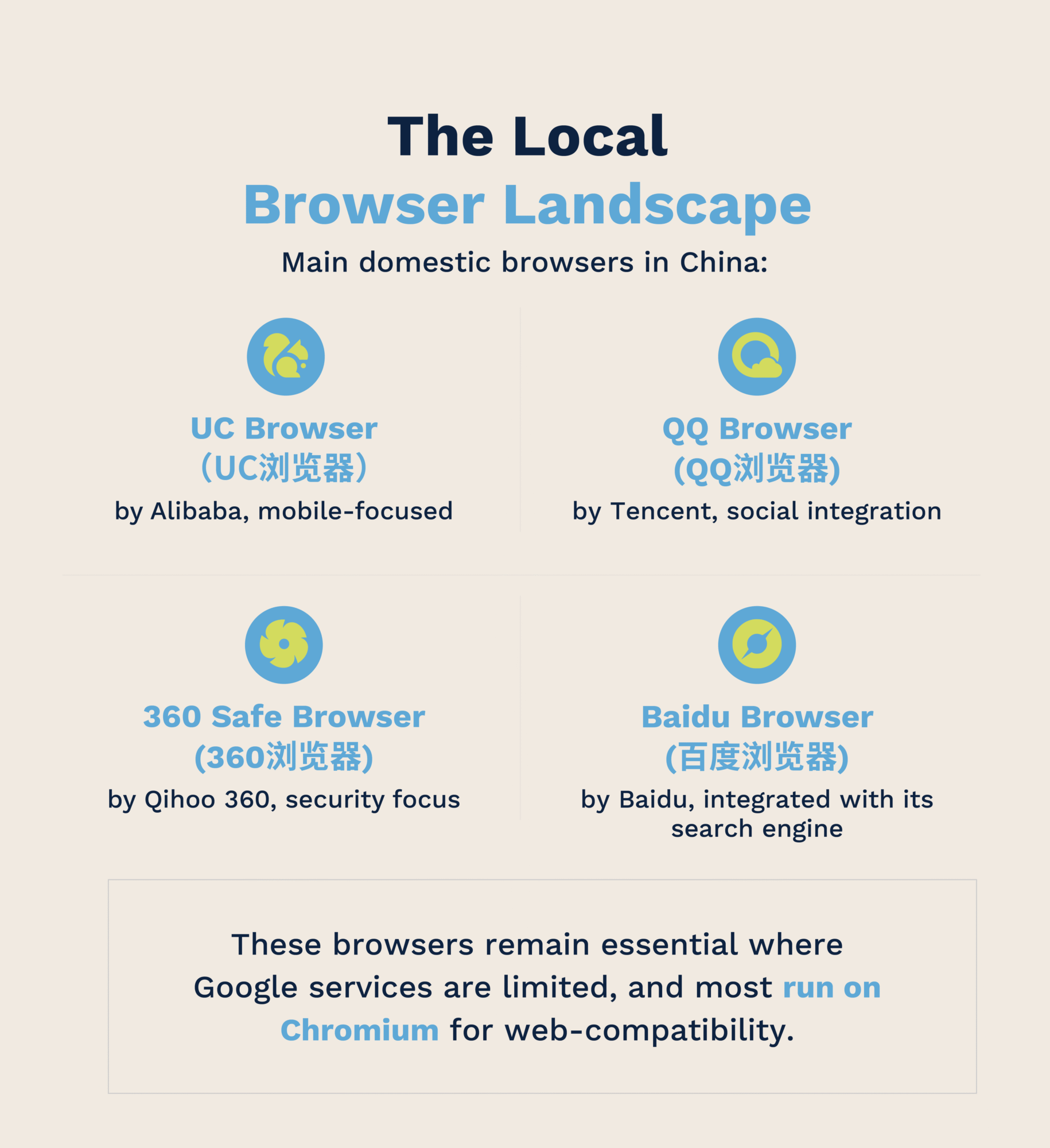
Mobile Is Where China Browses
Mobile browser share (Sept 2025):
- Chrome (incl. Chromium variants): 45.14%
- Android: 17.95%
- Safari (iOS): 17.63%
- UC Browser: 9.54%
- Edge: 4.74%
- QQ Browser: 4.11%
(Sources: StatCounter 2025)
Over 95% of Chinese users browse primarily on mobile.
For digital marketers, mobile optimization and Chromium compatibility are non-negotiable for reach and ad performance.
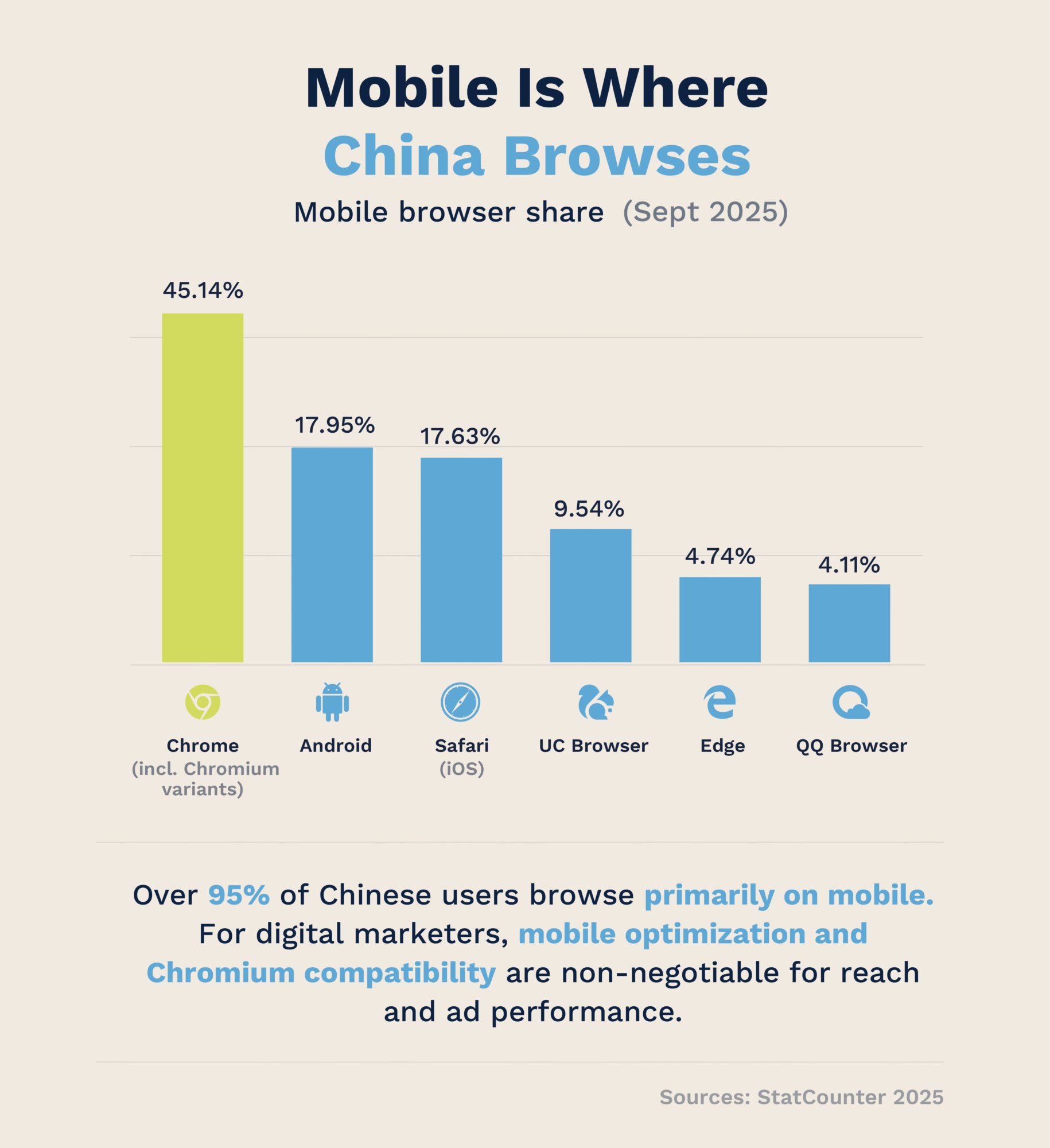
Desktop Still Matters, Especially for Business
Desktop browser share (Sept 2025):
- Chrome: 73.46%
- Edge: 13.5%
- 360 Safe: 5.51%
- Safari: 1.85%
- QQ Browser: 1.68%
- Firefox: 1.64%
(Source: StatCounter 2025)
Desktop remains a key channel for enterprise, SaaS, and productivity tools. Most business platforms are optimized for Chrome and Edge due to their strong integration and cross-device compatibility.
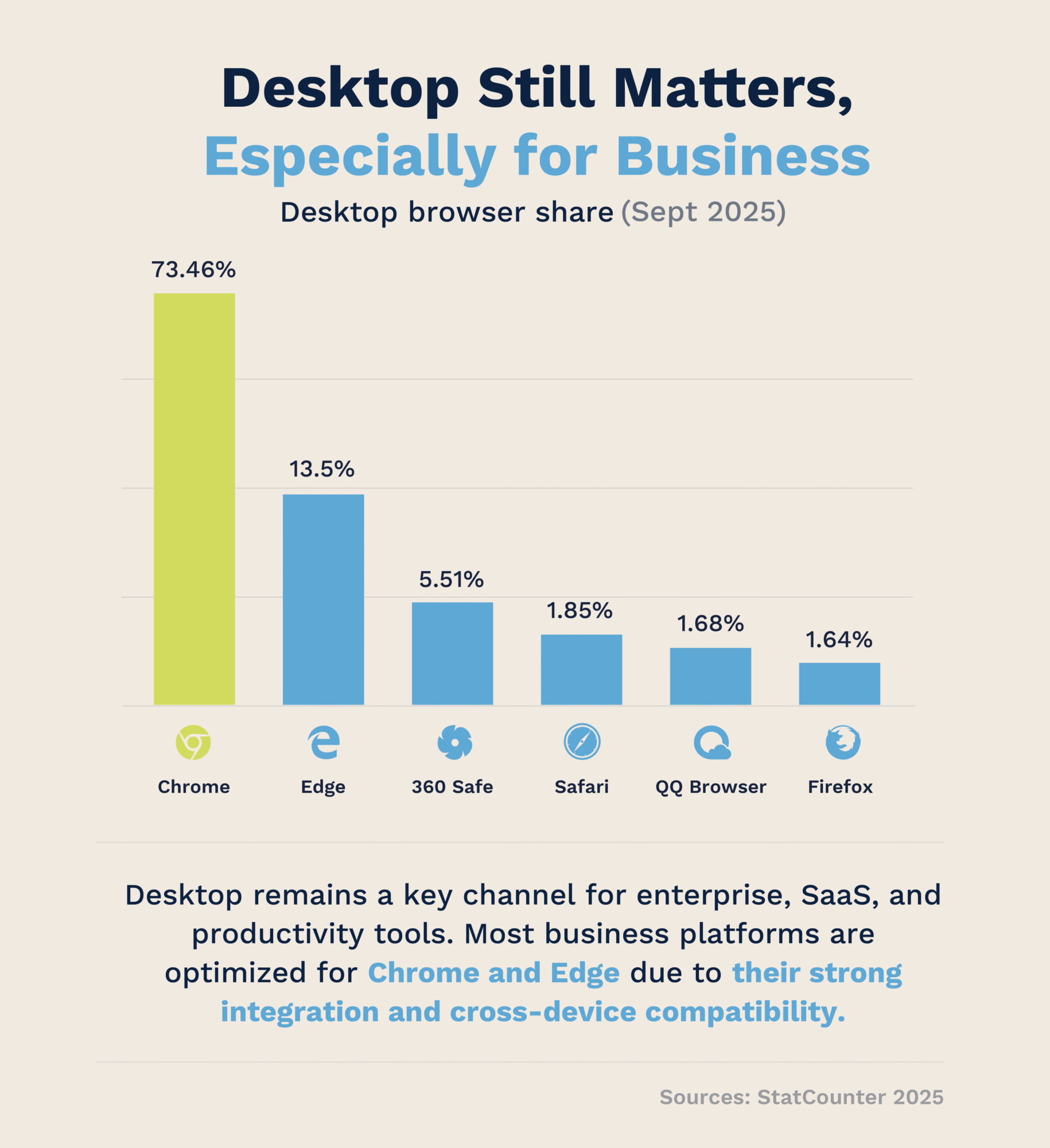
Trends & Opportunities (2021 → 2025)
Key shifts:
- Chromium browsers now power most of China’s web traffic.
- Local browsers are losing share outside their ecosystems.
- AI integration (voice, summarization, and smart search) is raising fast.
- OEM preinstalls and data localization continue to shape competition.
The next phase of competition will hinge on AI capabilities, privacy trust, and ecosystem integration, rather than just speed or design.
